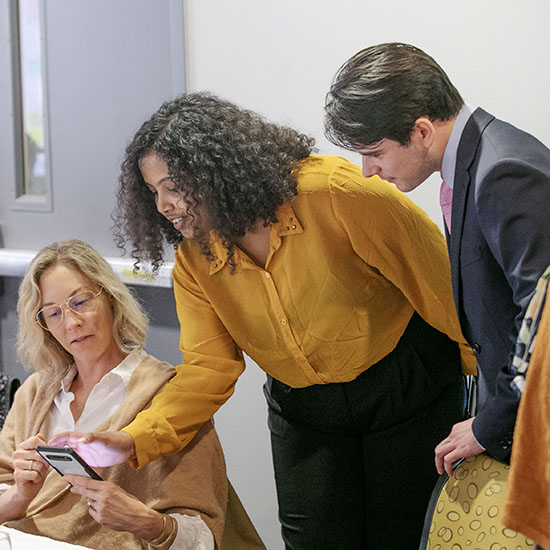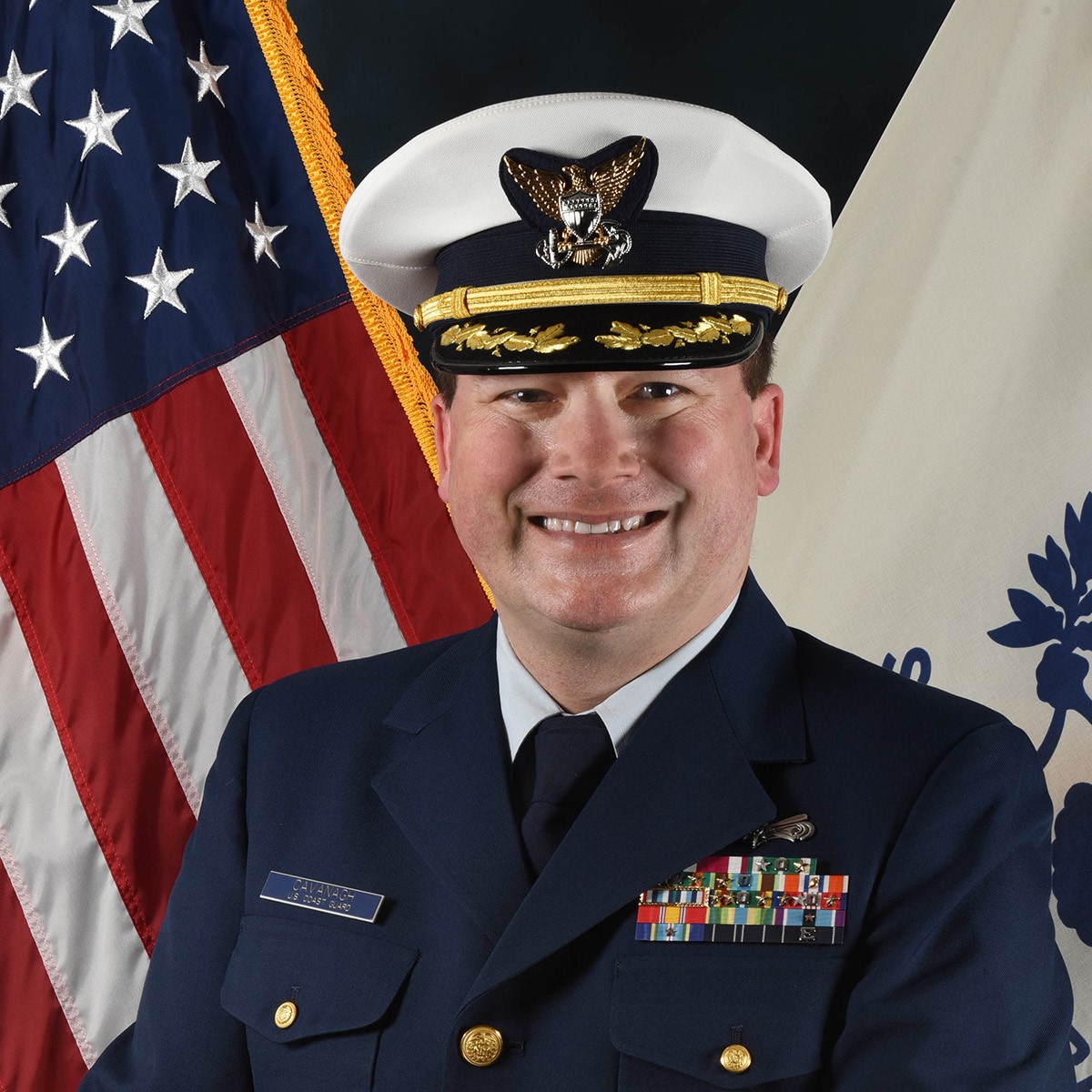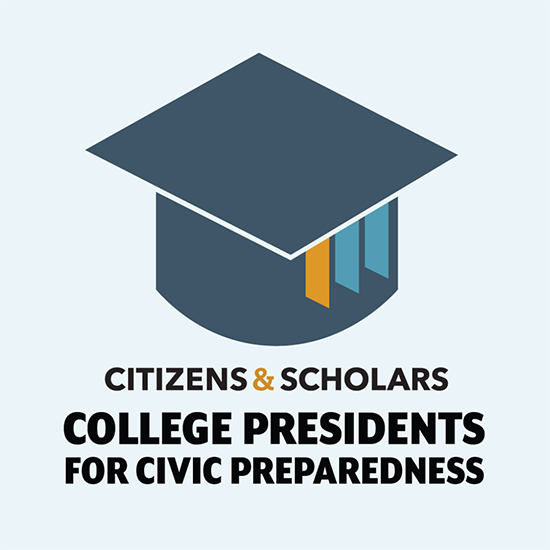Learning from mistakes at Skidmore’s Humanistic Inquiry Symposium
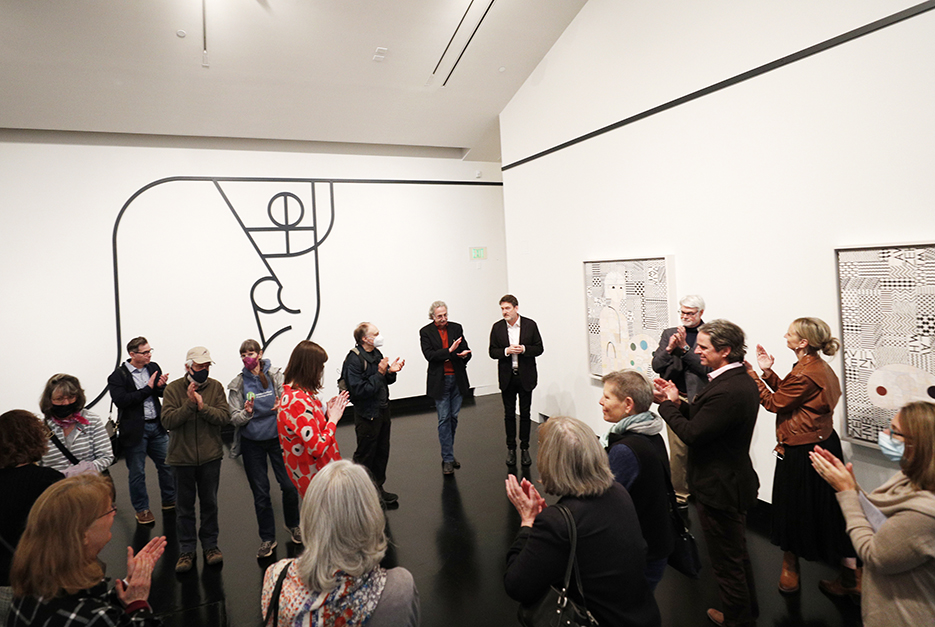
Skidmore's Humanistic Inquiry Symposium is a showcase not only of Skidmore faculty’s rigorous scholarship and creative endeavors but also the supportive environment that is at the heart of the College.
The community gathering — open to everyone — is part academic conference and part social event. Faculty, staff, students, alumni, and community members come together to explore ideas, raise tough questions, and — in an encouraging, collegial environment — learn from mistakes while also having some fun.
“The Skidmore Humanistic Inquiry Symposium is an event of both love and rigor,” explained Barbara Black, professor of English, who organizes the annual interdisciplinary gathering with Michael Arnush, associate professor of classics and an associate dean of the faculty.
This year’s theme was “Mistakes and Discovery; Truth and Ways of (Not) Knowing.” Many of the presenters, representing disciplines ranging from classics and theater to economics and psychology, spoke about the ways that mistakes were fundamental to their scholarship, to discovery, and to the liberal arts broadly.
Every mistake is an opportunity; creativity means taking risk.Larry OpitzProfessor of Theater
Opitz shared tales of acting mistakes on the stage and described how forgotten lines and technical mishaps were inherent to every production.

Darrin McMahon, professor of history at Dartmouth College, spoke about “The Genius Can Make No Mistake: Portals of Discovery and the Birth and Death of Genius” in his keynote talk.
Patrice Malatestinic, a lecturer and private music instructor, shared more than two dozen terms that French hornists use to describe missed notes from “honks” to “clams.” She also noted how an army bugler’s botched note at President John F. Kennedy’s funeral in 1963 has even come to be seen as a symbol of a grieving nation.
“From the perspective of athletics, mistakes are our stock and trade,” said Professor of Health and Human Physiological Sciences Jeffrey Segrave, who studies sports.
President Marc Conner, a literary scholar, presented on his scholarship about the writer Ralph Ellison and noted that learning from failure was an important lesson of a well-rounded liberal arts education.
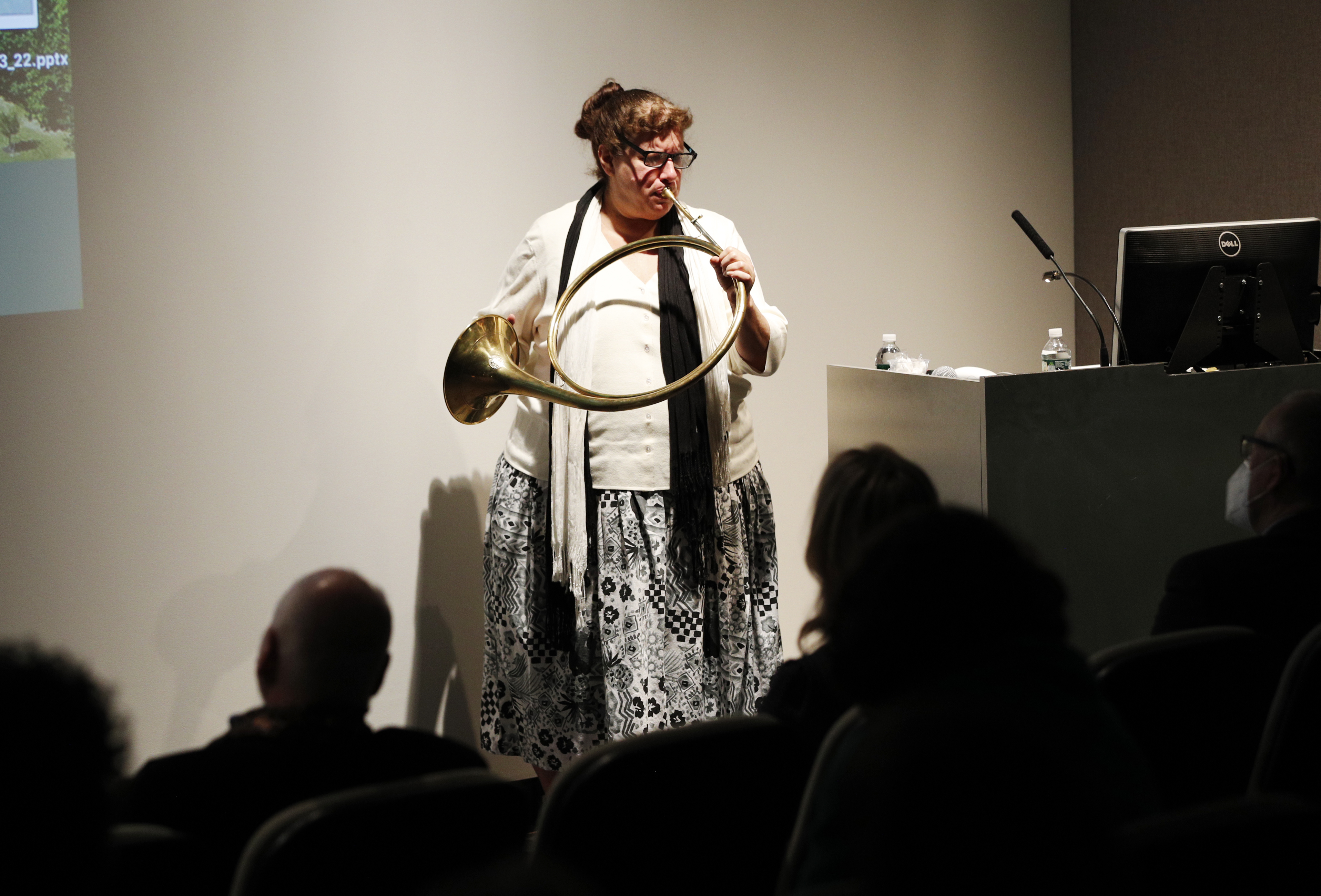
Patrice Malatestinic, a lecturer and private music instructor, demonstrates a horn during her talk about making mistakes in music.
The symposium, hosted by the Tang Teaching Museum and Art Gallery, was the first since the onset of the COVID-19 pandemic. After two years of social distancing, members of the Skidmore community enjoyed the opportunity to come together, enjoy one another’s company, understand different academic approaches and disciplines, and also laugh.
Sarah DiPasquale, associate professor and chair of the Department of Dance, invited the audience to participate in a shared dance exercise that elicited both giggles and reflection on the nature of mistakes.
Theater majors Will Davis-Kay '23 and Sophie Pettit ’23 offered three impromptu performances of a scene from Shakespeare’s “Much Ado About Nothing” based on three distinct — and unexpected — scenarios. Pettit noted that experience on the stage has made her less fearful of making mistakes in other courses as well.
“Rehearsals are just a series of mistakes,” explained Assistant Professor of Theater Dennis Schebetta.
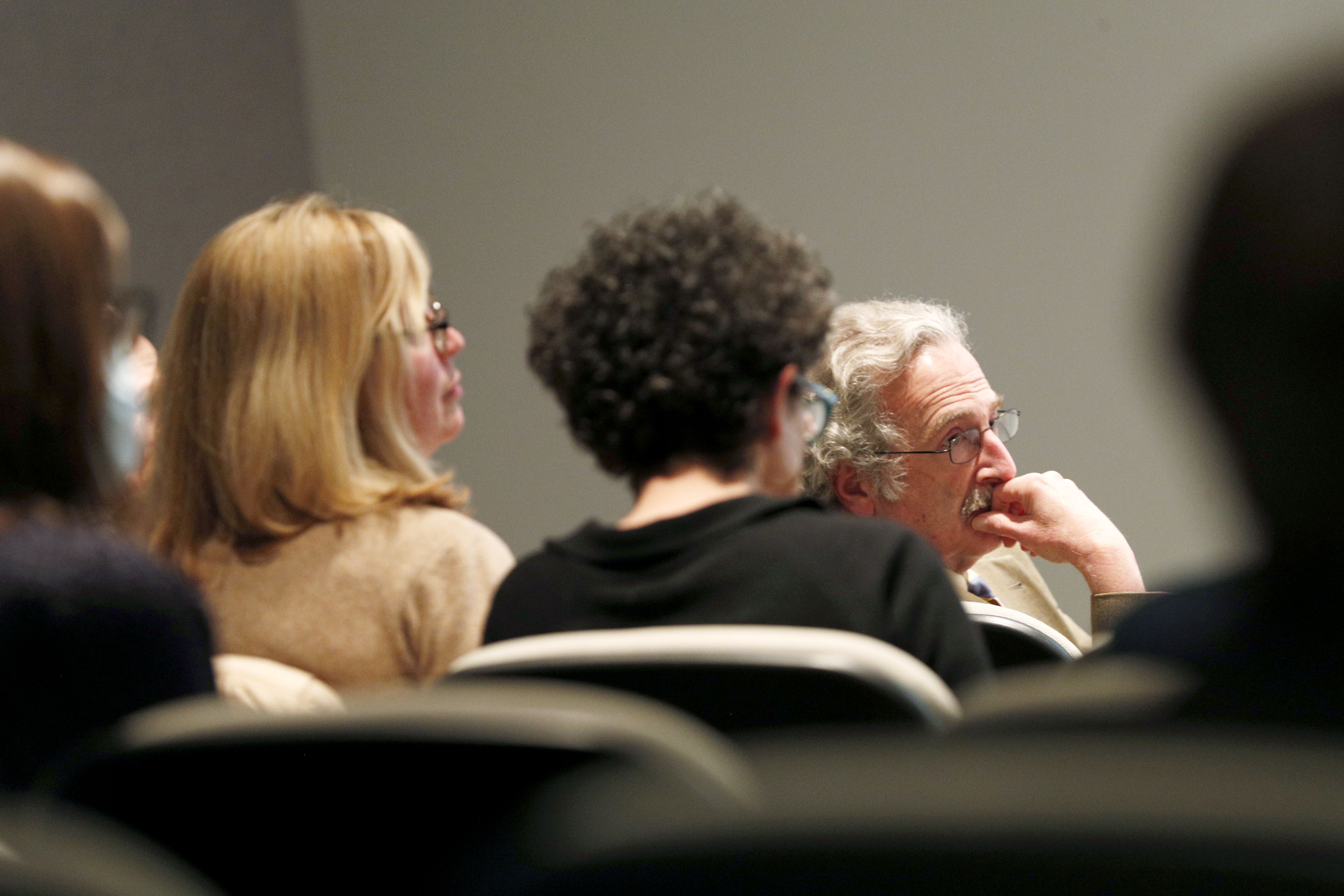
Participants in the Humanistic Inquiry Symposium, including organizer Michael Arnush, associate professor of classics and an associate dean of the faculty, listen during a talk during the two-day forum.
Some reflections were deeply personal. Associate Professor of Art Deb Hall, whose original artwork was featured in the symposium, shared a story of how a family mystery was solved through serendipity decades later.
The two-day gathering opened with a keynote address by Darrin McMahon, professor of history at Dartmouth College, who examined the evolving concept of "genius," from antiquity to its meaning in popular culture today.
Dan Curley, associate professor of classics, and Greg Spinner, teaching professor of religious studies, spoke about what they learned — and mistakes they made — while curating a Tang exhibition two years ago. Their exhibition, “FLEX,” was one of many public events disrupted by the COVID-19 pandemic in 2020.
Dayton Director of the Tang Ian Berry, Assistant Director for Curatorial Affairs Rachel Seligman, and Assistant Professor of Art History Nancy Thebaut offered participants guided tours of current exhibitions.
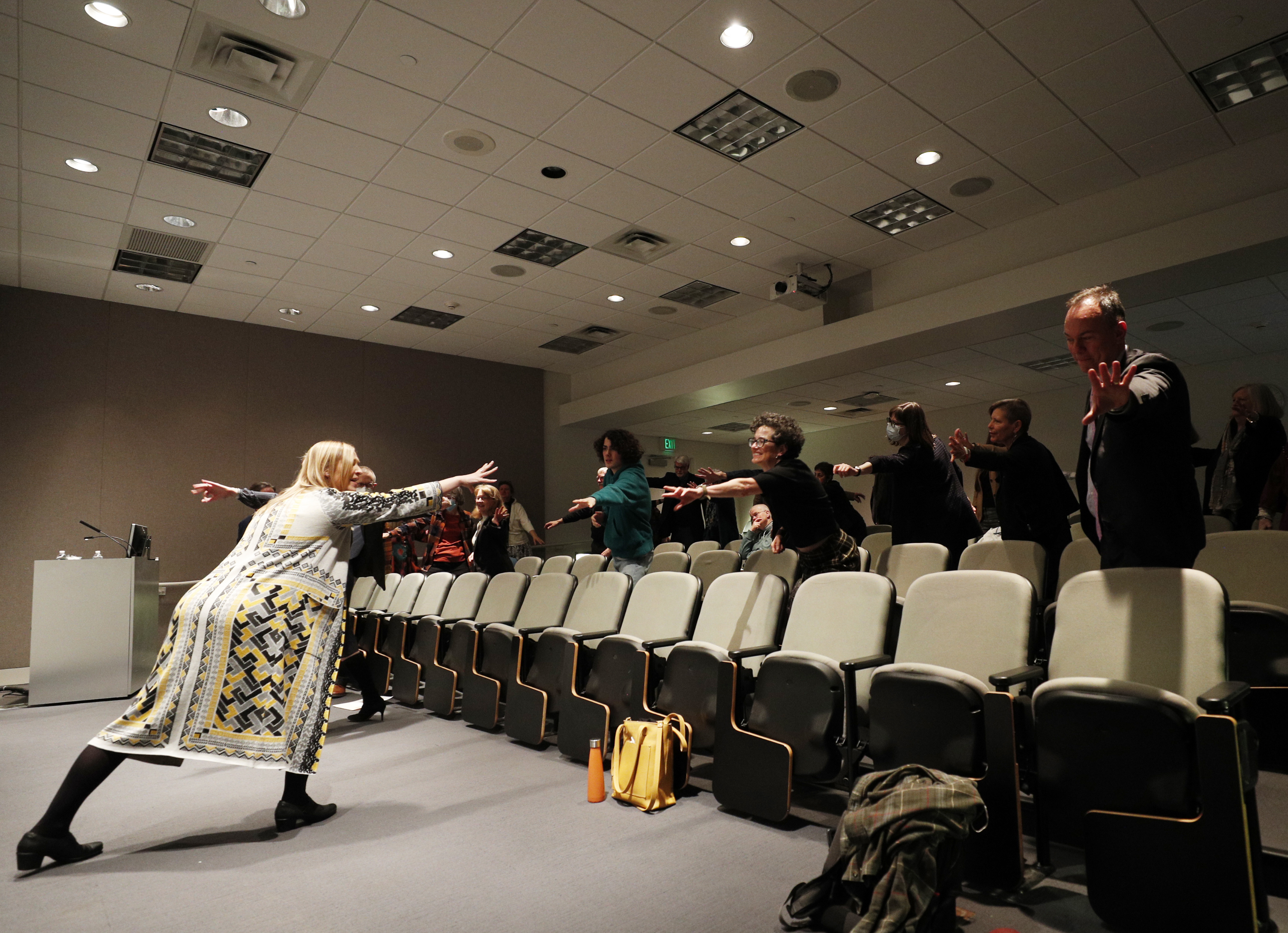
Sarah DiPasquale, associate professor and chair of the Department of Dance, leads the audience in a shared dance experience.
Associate Professor of English Linda Hall and Professor of Political Science Beau Breslin both spoke in different ways about the power of editing. Associate Professor of Economics Sandra Goff and Lisa Jackson-Schebetta, associate professor and chair of the Department of Theater, offered additional insight from their disciplines.
Other talks delved into complex questions of racial justice, tyranny, and war and peace. Pushkala Prasad, Zankel Professor of Management for Liberal Arts Students, exposed “ugly truths” about the relationship between race and capitalism; Professor of Psychology Sheldon Solomon discussed how authoritarian leaders sought to undermine truth.
“In a time when democratic values are under assault pretty much everywhere one looks,” said President Emeritus Philip A. Glotzbach, a philosopher, “being clear about the relationship between truth and friendship and modeling these virtues appropriately for our students become all the more important.”
